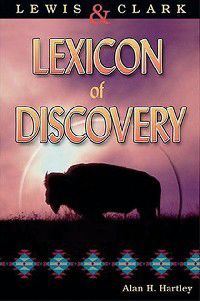Lexicon explores the language of Lewis and Clark
Published 4:11 am Thursday, January 27, 2005

- 'Lewis and Clark Lexicon of Discovery,' by Alan H. Hartley.
PULLMAN, Wash. – What is a cataplasm, and what do you do with one? Would you be insulted if someone called you argillaceous? Would you want someone to give you a clyster? Would you eat wapato? What does it mean when a canoe flacks? These are all words that were familiar to Meriwether Lewis and William Clark, and penned by expedition members in their traverse notes, but are less commonly used and understood today.
“The journals are a fascinating record of American English at the time of the greatest expansion in U.S. history,” states Alan H. Hartley, author of “Lewis and Clark: Lexicon of Discovery.” He currently works as an independent lexicographer, editor and researcher, and has contributed to the Oxford English Dictionary, New Oxford American Dictionary and the Oxford American College Dictionary. Hartley spent more than five years in research on the history, people and physical world of the expedition, hoping to help those who are interested in the Lewis and Clark expedition better understand the language of the time and also appreciate its sound. His special emphasis on pronunciation will be especially valuable to historical reenactors.
The volume features more than 1,100 entries and 2,000 illustrative quotations, as well as considerable background material on the English (and other languages) of the expedition. A typical entry includes the headword, pronunciation, definition, cross reference and the related journal quotation along with date, author and citation information.
“Lewis and Clark: Lexicon of Discovery” is 6″ x 9″ and 256 pages, and is offered in paperback for $24.95 or spiral for $27.95. It is available at bookstores or can be ordered directly from WSU Press at (800) 354-7360 or wsupress.wsu.edu
Washington State University Press is associated with Washington State University located in Pullman, Wash. WSU Press publishes scholarly books with a cultural or historical relationship to the Pacific Northwest.
Cataplasm – a poultice
Argillaceous – composed of clay
Clyster – an enema administered with a syringe
Wapato – the edible root of the arrowhead
Flack – to splash





